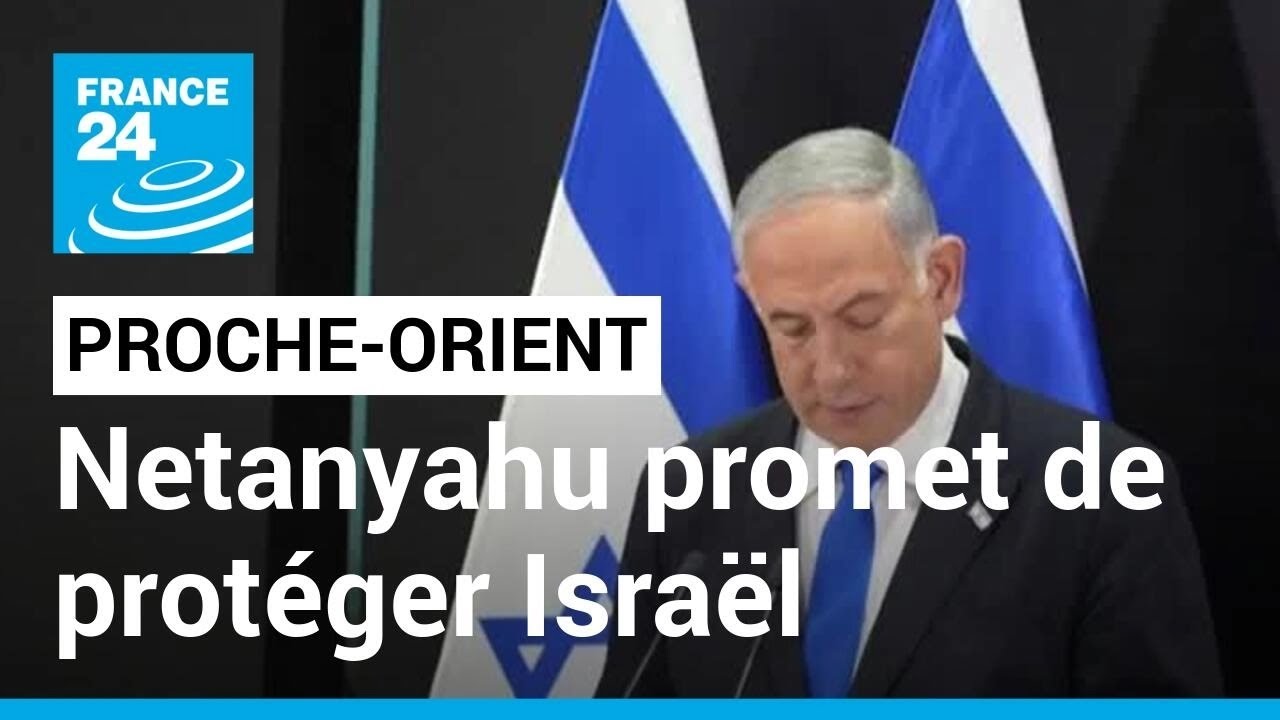Flambée De Violence Au Proche-Orient Netanyahu Promet De Protéger Israël "Sur Tous Les Fronts"
Unleash Your Creative Genius with MuseMind: Your AI-Powered Content Creation Copilot. Try now! 🚀
Introduction: A Desperate Plea for Security
In the heart of the Middle East, violence and chaos have become the norm. Both Israelis and Palestinians are caught in a never-ending cycle of death and destruction. Faced with internal struggles and a surge in violence, Israeli Prime Minister Benjamin Netanyahu has made a desperate promise to restore security to his country. But can he deliver on his words? Today, we delve into the complexities of the situation with David Khalfako, Director of the North Africa and Middle East Observatory at the Jean Jaurès Foundation.
Section 1: Netanyahu's Martial Approach
Netanyahu's recent martial rhetoric, vowing to protect Israel on all fronts, is not surprising. He has long criticized previous governments for their handling of the wave of terrorism that has plagued the nation. However, his own track record leaves much to be desired. After three months of governance, his coalition government, comprised of right-wing and far-right parties, has struggled to maintain stability and security. This has prompted his recent speech, an attempt to reassure the Israeli people in the face of a deteriorating security situation. But did it have the desired effect? It seems not. Netanyahu was forced to backtrack and reinstate his disgraced Defense Minister, signaling a disarray at the highest levels of government.
Section 2: A Nation in Crisis
Israel's recent political, security, and economic crises have taken a toll on Netanyahu's popularity. Recent polls indicate a significant decline in his approval ratings, with his party losing ground to the opposition. The Israeli people, fed up with the government's handling of justice reform and continued settlement expansion in Palestinian territories, have taken to the streets in massive protests. These demonstrations, unprecedented in their scale and diversity, highlight the importance of maintaining a balance of power and the rule of law in a democratic society. Netanyahu, feeling the pressure, has already made concessions, putting his justice reform plans on hold. The opposition, led by figures like Yair Lapid and Naftali Bennett, stands to gain from this political turmoil and could easily form a coalition government if elections were held today.
Section 3: A Government Fueling the Flames
It's important to note that the current wave of violence is not solely a result of Netanyahu's government. The underlying tensions have been brewing for years, with an increasingly radicalized Palestinian population feeling marginalized and deprived of political and diplomatic horizons. This has led to an uptick in armed resistance, targeting not only soldiers but also innocent Israeli civilians. However, Netanyahu's government's rhetoric, particularly from extreme right-wing ministers, has only added fuel to the fire. The inflammatory language used by figures like Bezalel Smotrich has further polarized the situation. On the Palestinian side, Islamist groups like Islamic Jihad and Hamas have also taken advantage of the chaos to stoke the flames of conflict, aiming to weaken both Israel and the Palestinian Authority.
Section 4: A Regional Time Bomb
The violence in Israel and the Palestinian territories has far-reaching consequences, extending beyond their borders. The recent reestablishment of diplomatic relations between Saudi Arabia and Iran adds another layer of complexity to the already volatile situation. Iran openly speaks of unifying fronts against Israel, aiming to encircle the nation from the south, north, and east. This strategy is evident in the construction of a terror infrastructure in southern Lebanon, with potential implications for the stability of the entire region. The increased coordination between Hezbollah and Hamas poses a significant risk of escalation, and any miscalculation could trigger a devastating chain reaction.
Conclusion: A Call for Change and Stability
The situation in the Middle East is dire, with lives at stake and the potential for a regional conflict looming. It is clear that a change in leadership and a renewed focus on stability and diplomacy are needed. Netanyahu's government has faltered in its handling of the crises, leaving the Israeli people disillusioned and vulnerable. The opposition, with its promise of change, stands ready to take the reins. It is crucial for all parties involved to recognize the importance of de-escalation and prioritizing the well-being and security of both Israelis and Palestinians. Only through dialogue, compromise, and a commitment to peace can the Middle East find the stability it so desperately needs.

Related Recaps
- "No Delhi Budget Today": Arvind Kejriwal Versus Lt Governor
- BYFRON ALREADY BYPASSED? (New Anti-Cheat)
- Living In TRAIN For 24 Hours 🚂 * Haunted Train 😭* | SAMREEN ALI
- The Microsoft/Activision Merger Could Still Happen. PlayStation Fanboys disappear From Twitter.
- Tesla’s 3-6-9 and Vortex Math: Is this really the key to the universe?